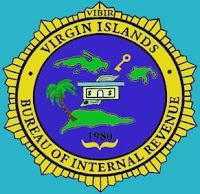According to DoJ, the Eighth Circuit Court of Appeals issued a published opinion on Tuesday, Dec. 15, 2020, holding for the government in a case involving the statute of limitations on assessment in the context of bona fide residency in the U.S. Virgin Islands (USVI).
In Coffey v. Commissioner, No. 18-3256, the Eighth Circuit Court of Appeals reversed the decision of the U.S. Tax Court that the IRS’s determinations were barred by the statute of limitations on assessment.
Taxpayers owned a profitable publishing enterprise that ostensibly relocated to the USVI, and Judith Coffey claimed to be a USVI resident thereafter.
The couple filed joint tax returns with the Virgin Islands Bureau of Internal Revenue (VIBIR), but not with the IRS.
The VIBIR sent the first two pages of the Coffeys’ returns to the IRS as part of its normal process to claim “cover over” funds (i.e., tax revenue) from the U.S. Treasury. Disputing taxpayers’ assertion that they were bona fide residents of the USVI, the IRS conducted an audit and sent them notices of deficiency determining over $2 million in taxes and penalties.
In an opinion with a concurring and dissenting set of judges, the Tax Court held that the deficiency notices were time-barred because the pages that the VIBIR sent to the IRS constituted filed “returns” that started the limitations period.
The Eighth Circuit reversed the Tax Court and confirmed the long-standing principle that the statute of limitations begins only when a return is filed.
Because the taxpayers did not comply with the requirements to file returns with the IRS, the statute of limitations never began to run.
Although the Eighth Circuit’s opinion is focused on the statute of limitations issue, the Tax Division and the IRS will use all available legal processes to challenge improper attempts to avoid or evade U.S. income tax by unlawfully misrepresenting a taxpayer’s residence, regardless of where such residence is claimed. See e.g., IRS Notice 2004-45.
Have IRS Tax Problems?
Contact the Tax Lawyers at
Marini & Associates, P.A.
www.TaxAid.com or www.OVDPLaw.com
or Toll Free at 888 8TAXAID (888-882-9243)
Read more at: Tax Times blog





